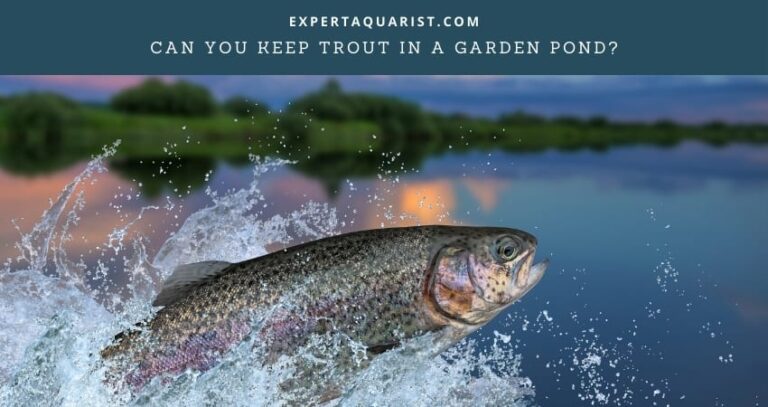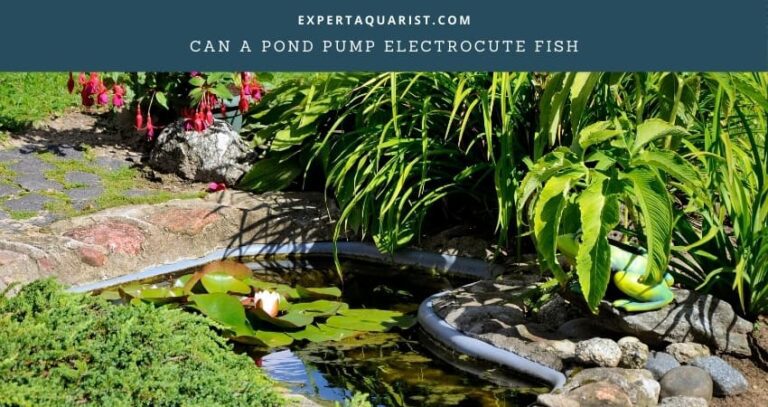There’s nothing like spending your happy hours in front of a pond, and all that it takes to ruin that delicate moment is a handful of leeches.
Think about it; you’re calmly sitting idle in front of your pond and sipping coffee or your favorite fruit juice; you look down and see leeches are sucking your blood. It’d make you hate going to the pond the next time.
To prevent that you need to exterminate leeches with chemicals or salt, otherwise go for a natural method like trapping, letting fish eat them, etc.
Here, I will share my suggestions on how to get rid of leeches in a simple way without harming the balance of the pond and fishes.
So without wasting any time, let’s start reading.
Understanding leeches
Leeches are loosely related to earthworms, like the cousins you see once on holiday. There are 700 or more species of them on the planet, and a significant portion of them thrive on freshwater sources like a pond.
They use their teeth and mouth that look like suction cups to latch onto other animals and consume their blood. Debris is their playground as the accumulated junk is both food and a hiding spot from fish.

Smart ways to get rid of leeches
Not all leeches suck blood, but you can’t help it; it’s way more comfortable for you to get rid of them altogether than picking them one by one and ensuring whether they’re a nuisance or not.
You could add chemicals or salt to the leeches for quick extermination, but that leaves your pond fish in danger. But, using a natural method would be a smart way to go about it because you pose no threat to your pond. Let’s start:
Natural way to get rid of leeches: step by step
1. Reduce debris
When debris accumulates at the bottom of the pond for long, it turns into sludge; leeches love that. You’ll be able to control leeches to a great extent if you remove that sludge altogether.
Why? Because they lay their eggs in sludge.
Fallen leaves, twigs, uneaten fish food are great examples of debris that decompose and turn into sludge. All of them accumulate easily if you are not paying attention.
If you have a koi fish pond, it is even more important to have it clean. So by removing all that muck, you’re keeping your pond clean and suppressing leech growth to an extent. It’s a good enough reason I believe.
You can use a rake or netting to pull out all the debris in small ponds, but it’s not convenient for a large pond. In those situations, you need a pond vacuum, like the ones mentioned here.
A strong vacuum will thoroughly suck up all the leeches, as well as any other worms [if there are any].
2. Add beneficial bacteria
After you’ve cleaned up the majority of the debris[if not all], you can manage the rest of the traces by adding beneficial bacteria.
These bacteria swim down to the bottom of your pond and gobble down any remaining muck that might have stayed. Even if there isn’t any sludge, don’t feel like you’ve failed because beneficial bacteria are great for other things too.
Most importantly, they’ll break down ammonia into less harmful compounds that the plants will absorb, so it helps to reduce the nitrogen without you having to do anything about it. You should also install a good pond filter.
This way, you avoid algae growth, as well as your fish, don’t get affected too.
3. Introduce predators in the pond
Fish
You probably don’t know, but most fish like to eat leeches; they’re the leech terminator. Almost any fish will dine on these pests; the best of the lot is the red-ear sunfish. If you have too many leeches, get a few of these and watch them scoop up all of them.
Koi is another replacement if you don’t want to go out of your way and bring a fish breed just to get rid of them faster.
In any case, fish will do a fine job as long as there’s no sludge to provide hiding spots. So, make sure to pay attention to the first two steps.
Ducks
Birds also prey on leeches as a good protein source. Out of all the avians, ducks are the biggest threat to leeches. Also, Duck poop is an excellent fertilizer for your garden or an aquaponic pond system.
Wood duck and red-necked duck are two of the most prominent leech eaters. They’ll dive in and pick up any leeches, worms, etc. that are infesting the pond.
Having ducks in a pond isn’t such a big deal as you can attract them easily.
Turtles
Both aquatic and non-aquatic turtles are avid eaters of leeches. They are omnivores that also eat algae, duckweed, and insects. So having them is beneficial for your pond, both for visual appeal and effectiveness.
4. Add traps
If by any chance these leeches survive the expert predators you’ve let loose, don’t feel down, I have one extra layer of vigilance waiting for you.
This is one of the oldest tricks in the book. Whenever something pesters us, we catch it and send it away; and that’s exactly what we will do – add a trap.
Honestly, most leeches should be eradicated by step 3. But by adding a trap to lure them in, we’re making this foolproof.
There are a few different traps, but the way it works is the same. You place something that’ll lure in the target and bam! They’re trapped.
The problem with readymade traps in the market is that most of them are designed for small ponds. For larger ponds, you have to look a bit harder.
Or, you can just make one by yourself! It’s pretty straightforward; all you need is a metal can [like from a coffee or any other beverage container] and a bit of food. Follow these steps:
- First, you take the tin can and punch holes in it, ⅓” to ¼” will do. Next, you put a piece of meat on it- a piece of chicken, beef jerky, and bacon should work pretty well.
- You just put the food inside the container with some pebbles or rocks to let it sink to the bottom.
- When leeches see the food, they’ll get attracted to it and enter through the holes. Then the rest is just a waiting game.
Once they enter, that’ll be their demise. While they could enter, getting out is more challenging because you’ve punched holes from the inside.
So the metal is on the inside, and it is sharp now, not to mention the leeches got bigger after eating. They are helplessly trapped now, at your mercy.
After you catch the leeches, you take them out and kill them or throw them far away; it’s up to you.
So this way, you can easily get rid of leeches. It is a one-person job and won’t take you too long. You also don’t need any extravagant investments.
Chemical treatment for leeches
Chemicals should be your last option when everything else fails because it could turn out lethal for your fish and plants.
But if you want to go forward with it, then you have to drain the pond entirely, relocate the plants and fish, wipe out all debris and finally apply diluted bleach on it.
Afterward, wait for a week, then you can clean the pond and return your fish and plants to their rightful place.
Another option is to use Copper Sulfate solution to kill leeches in the pond.
Whichever you choose, things could get scary if you don’t know what you’re doing. You need an extremely accurate measurement of the chemical amount and required knowledge about ponds.
Chemical solutions are expensive too.
All in all, I’d just skip this if you’re not 100% confident that you’ll be able to pull this off; even 99% isn’t enough.
Does salt kill leeches?
Yeah, they do. We use salt to draw water out of cells, so preserve vegetables, right? That’s exactly what we plan to do with leeches.
Leeches have permeable bodies, so if you apply salt to them, the water will eventually leave their bodies. They’ll shrivel up, and all you have to do is pick them up after their death.
But excessive salt is never good. It’ll harm your fish and plants. Especially pond fish like koi and goldfish don’t have a high resistance to salinity, and the same goes for freshwater aquatic plants.
If I were you, I’d stick to the natural means.
Remove leeches from fish
Don’t forget while predators prey on the leech; they’re still vulnerable to getting attacked by the leech themselves. Surprised?
So, make sure to keep an eye on your tools of leech destruction.
It is hard for leeches to attack a turtle, and you’ll spot any on a duck’s body easily. The problem lies with fish.
They attach themselves anywhere on a fish’s body, but most commonly around the gills and fins, so double-check those areas.
You can use a net to catch the fish and inspect them. You can use a basic pond net to catch regular sized ones like goldfish, but something large like koi would need a more specialized net.
Use tweezers to pull out the leeches if you encounter them, don’t pull the leech by force; otherwise, teeth could remain inside the fish and could open a way for infection.
You should give the fish an antibacterial treatment; nevertheless, that way, not only you’ll seal off any chance of infection but also gonna boost faster healing.
Let the fish go back to the pond and monitor them for a few days. Inspect them every few hours.
This looks like an annoying job, but for the safety of your fish, you need to do it; you’re a pond owner after all.
What should I do if leech gets attached to me?
Not just fish, you also have a chance to get attacked by leeches. Don’t panic if it happens, stay calm and do the following things:
- Detach the leech’s suckers with nails by sliding it underneath and pushing the leech as you do it, then flick it away. The thinner end is the head, start from there. Don’t pull or the teeth might stay in and cause infection.
- If step 1 looks tricky for you, then you have to wait around 20 mins so it falls off on its own, this won’t injure you, and it beats having to pull them out by force and causing infection.
- After the leech falls off or you flick it away, apply a clean cloth on the wound and press it gently.
- Clean the wound with mild-warm water with soap and check for infections. Later you should use some antibacterial cream and seal it with a bandage. If there is an infection, call a doctor.
Common symptoms of infection are:
- Redness around the area
- Swelling
- Pus near the wound
- Pain
- Fever
Please, don’t pull off the leech by force, put it on fire, or place salt on it while it is attached to you.
No more leeches!
Phew, this is one big article, but I tried to ensure you know everything about how to get rid of leeches. Like I said before, not all leeches are bad, in previous centuries, some even were used for medicine. But, You don’t have enough time to pick them up and investigate.
If you feel bad about killing them, you can just throw them far away! Also, please remember what I said about the chemicals.
Well, enjoy your leech free pond!






